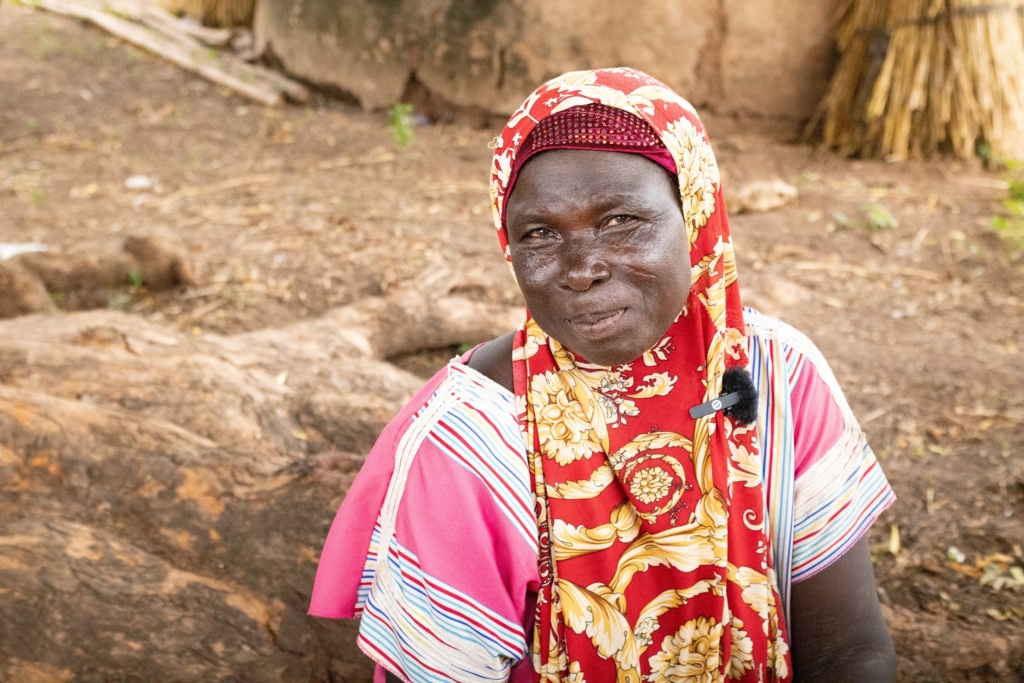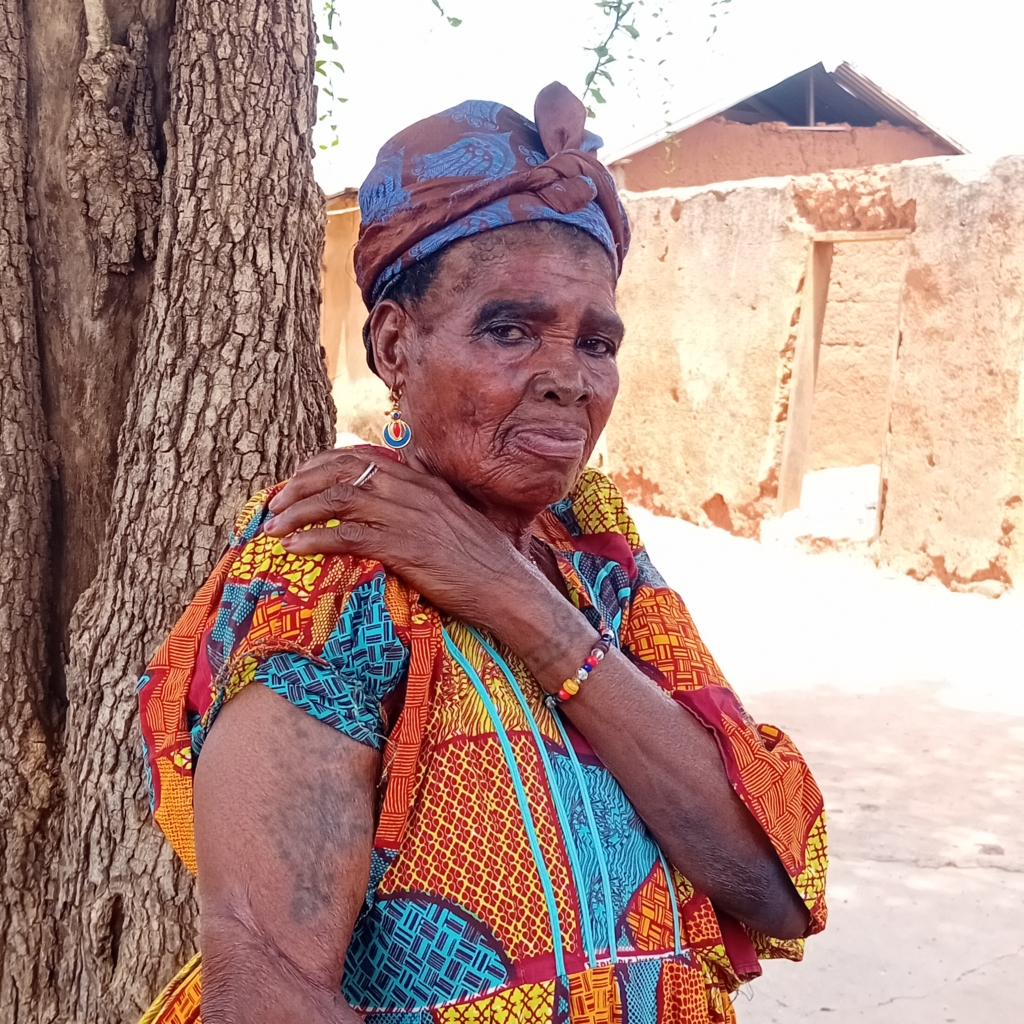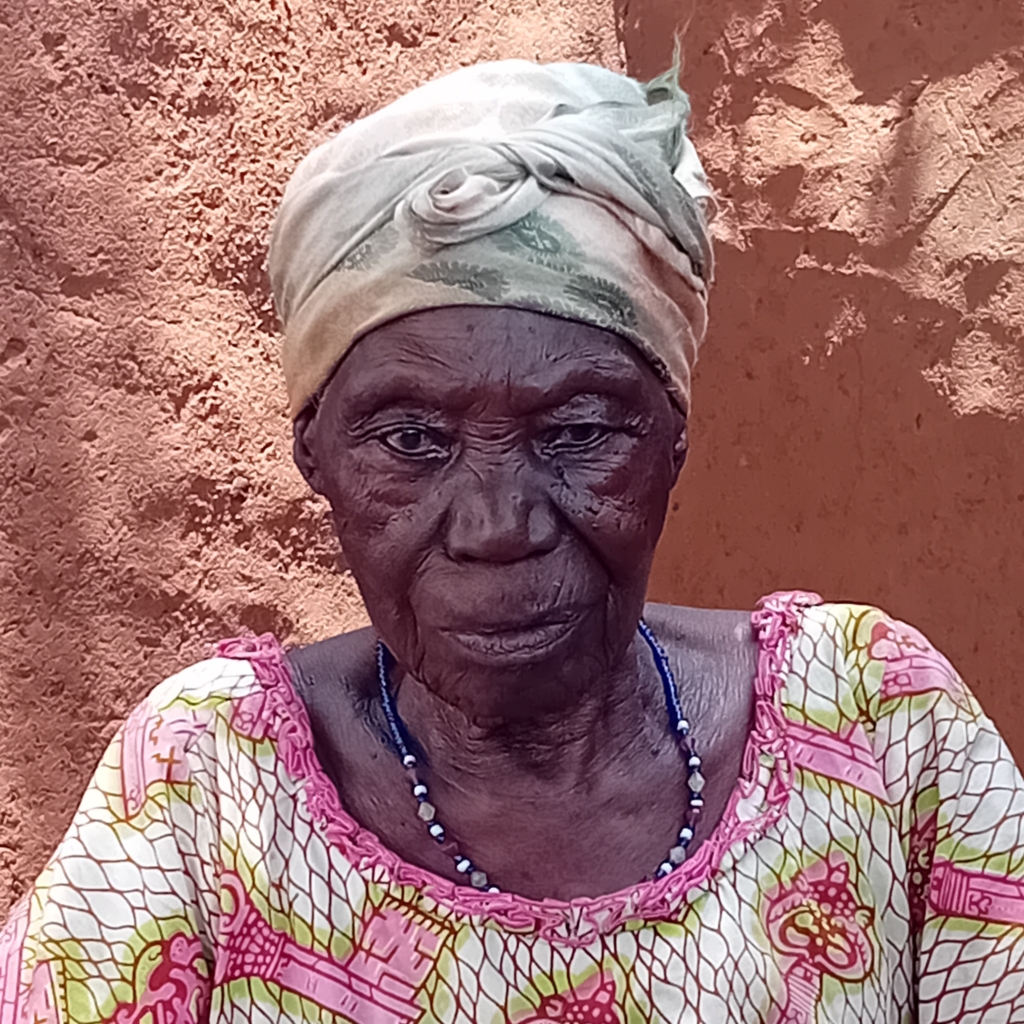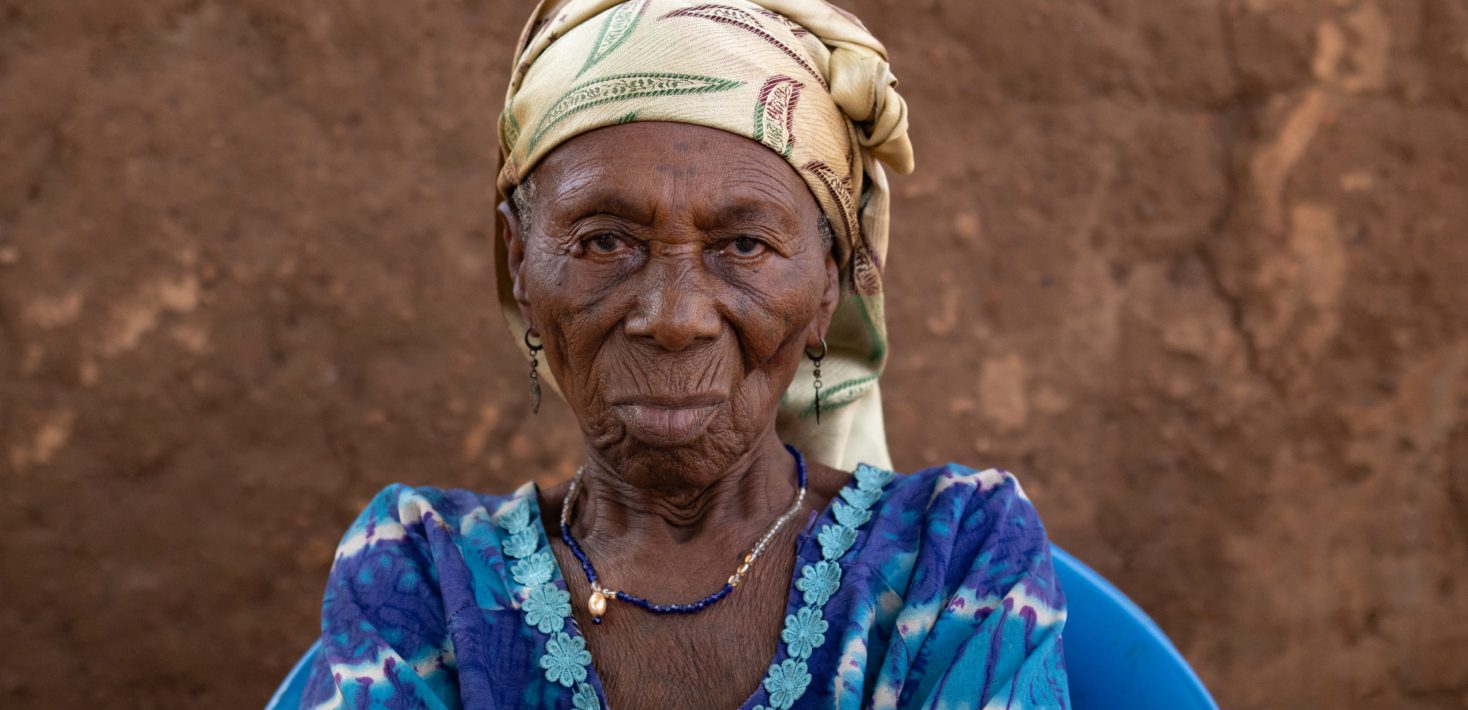As I looked up, I could see the back of some of the aluminum roofs from afar, but we still had to cross high grass to get to them. The place seemed isolated from the rest of the town. When we finally reached the entrance of the camp, we met the priest, who was sitting in the shade of large tree, while the women, gathered in a half-circle, were eagerly waiting for us. There were 15 of them, aged between 60 and 90 years old. They were all smiling. When we explained why we were there, they thanked us for taking the time to speak with them. To an outsider’s eye, this seemed to be a small village with a tight-knit community of older women. What was not apparent from the women’s jovial appearances was that their communities, even their families banished them in this remote area for being “witches”.
In Ghana, most people accused of witchcraft, in the majority older women, end up in one of the four camps overseen by traditional priests in the Northern and North East regions. People they once called family now treat them like pariahs. Husbands, siblings, in-laws, and sons are often at the centre of the tragedy. The so-called evidence against those women is underwhelming: a nightmare, an illness, the accident of a close relative, the death of a neighbour… Sometimes their accusers claim to have proof from soothsayers capable of diagnosing ill intentions. In truth, the women accused are the perfect scapegoats for a harsh reality: the sudden loss of a loved one or frustration over lack of resources.
Those camps that have been around for several decades are not detention centres, but they have no other choice but to stay there.
It is not a coincidence that the women accused happen to be considered “too old” to contribute to society or “too successful” or “opinionated” for being good-natured women. It takes little to turn their lives upside down and banish them from their communities; exoneration, however, is a herculean task. A single accusation becomes an unremovable stain that follows them around everywhere depriving them of their belongings, their livelihood, their dignity… They are branded for life.
In the worst-case scenarios, the whispers turn into killings. Five years ago, on 23 July 2020, the video of the beating of a 90-year-old woman in Kafaba, in the Savannah region, circulated online, sparking outcry nationwide and a demand for a change. Two women can be seen whipping and hitting her while tens of people she had known for years were cheering for her punishment. This horrible incident is not an isolated one, but it became the landmark for campaigning advocacy against the practice and its tragic consequences. As of July 2025, there is still no law criminalizing accusations of witchcraft despite efforts by Ghanaian activists advocating for this essential law.
Akua Denteh, the woman in the video, did not survive. The two women seen attacking her on the video were convicted of manslaughter. With the potential lethal consequence of a witchcraft accusation in mind, most women, resign themselves to go to the only places that would accept them. Those camps that have been around for several decades are not detention centres, but they have no other choice but to stay there.
Zeinabou’s* life shattered after her then co-spouse accused her of witchcraft. Her husband believed the accusation and her father told her she had to go to a camp. Ten years later, a sick Zeinabou moved out of the camp and into her son’s house, only to be accused again during church service. Now back in the camp, at 90 years old, she expressed no hope for the future: “That day they left me, as you leave a goat tied in some place”.
The women who welcomed us were in Kpatinga camp, in the Northern region, over 500 km from Accra, the capital city. The women who are still able to, work on nearby villagers’ farms during the harvesting season in exchange for a basin of food of about 15 kilos. After the harvest, they forage the fields for what farmers left behind; some pick up leftovers at the market. Those who can no longer do laborious work depend solely on help from other women or visitors.
The circumstances for livelihood in Gnani camp, 70 km further, are similar. It is the biggest camp in the country, housing over 200 adults accused of witchcraft, including men. When we arrived, some women spoke to us in a language I couldn’t understand, but I did not need to. I immediately knew from their universal gestures that they were asking for food. Women in Gnani camp, like those in all camps, also struggle with the lack of access to clean water. They are forced to walk for hours in a mountainous area to fetch water from the nearby river.
If those women had a superpower, it would be the incredible amount of resilience they have while faced with an unfathomable situation.
Access to health services is another challenge. A lot of the women have chronic illnesses, but some of the medications they need are not covered under the national insurance or are not available in the clinics near the camps. Support for mental health in the camps is also very limited. Those women carry the trauma of the accusations compounded with the verbal and physical attacks, the rejection of their families, and the day-to-day hassle of life in the camps. A widow who lives in a camp said she contemplated suicide after her brother-in-law accused her of killing her son: “I wanted to commit suicide because the accusation was too much. It was so painful for me.” She changed her mind because the other women in the camp convinced her not to do it. The solidarity amongst these women shines through in all their stories.



Five years after the killing of Akua, over 500 people still live in camps. As we were about to leave Kpatinga camp, the women started singing and clapping, wishing us a safe journey back. If they had a superpower, it would be the incredible amount of resilience they have while faced with an unfathomable situation. However, they need help.
*name changed to preserve anonymity
This article was initially published in Le Club de Mediapart.
This article has been republished on amnestyghana.org


